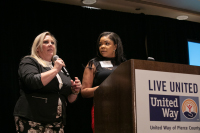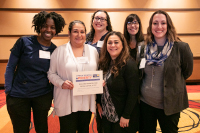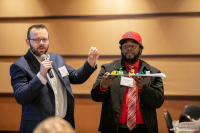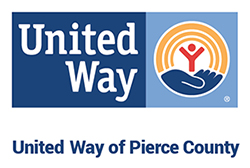Pitch to Ditch Poverty Challenge
Creative Approaches to Reduce Poverty through Community Engagement
Last spring we challenged the community to come up with creative approaches to addresses barriers to poverty. We had 17 submissions come in and some great judges: Brian Duerr, Community Relations at WSECU, Eli Taylor, Vice President Relationship Manager at Key Bank, Kathi Littmann - CEO & President at Greater Tacoma Community Foundation and Pamela Duncan, President and CEO for the Metropolitan Development Council.
We sought to identify creative approaches via an innovation challenge that provided funding, support and recognition to individuals and community-led groups who have big ideas that address family financial instability. Participants pitched their ideas at the third annual From Poverty to Possibilities event.
The ideas had to be designed in collaboration with the people who will use the innovation. There’s no better way to understand the hopes and aspirations of those you’re designing for than by talking with them directly! In addition, ideas had to consider diversity, equity and inclusion into the decision-making process to help remove disparities among groups for the best possible solutions.
The three winners of $5,000 each that will be used toward the initial launch of winning approaches to reducing poverty include:

Building Financial and Social Capital at Tacoma Community College

Community Based LFO Debt Relief

Just Dads
Eligibility Criteria
Big idea must address poverty, stagnant wages and/or financial instability of Pierce County families. Concepts must be designed with people who are living in poverty that you want to impact. You must consider the following components:
- Focus on the people who will use your product/innovation
- Help solve the fundamental problem, rather than the symptoms
- Think of everything as a system and the big picture
- Be willing to test your design decisions with real people to create the best user-experience
Any team with at least three Pierce County residents as members were eligible to apply. The following groups are encouraged, but not limited to:
- Student groups and classes (all ages)
- Groups of individuals with lived experience (e.g. ex-offenders, homeless, youth, etc.)
- Any informal group of neighbors and community-led groups
- Grassroots leadership groups and cross-sector content expert groups
- Advocacy and special interest groups

